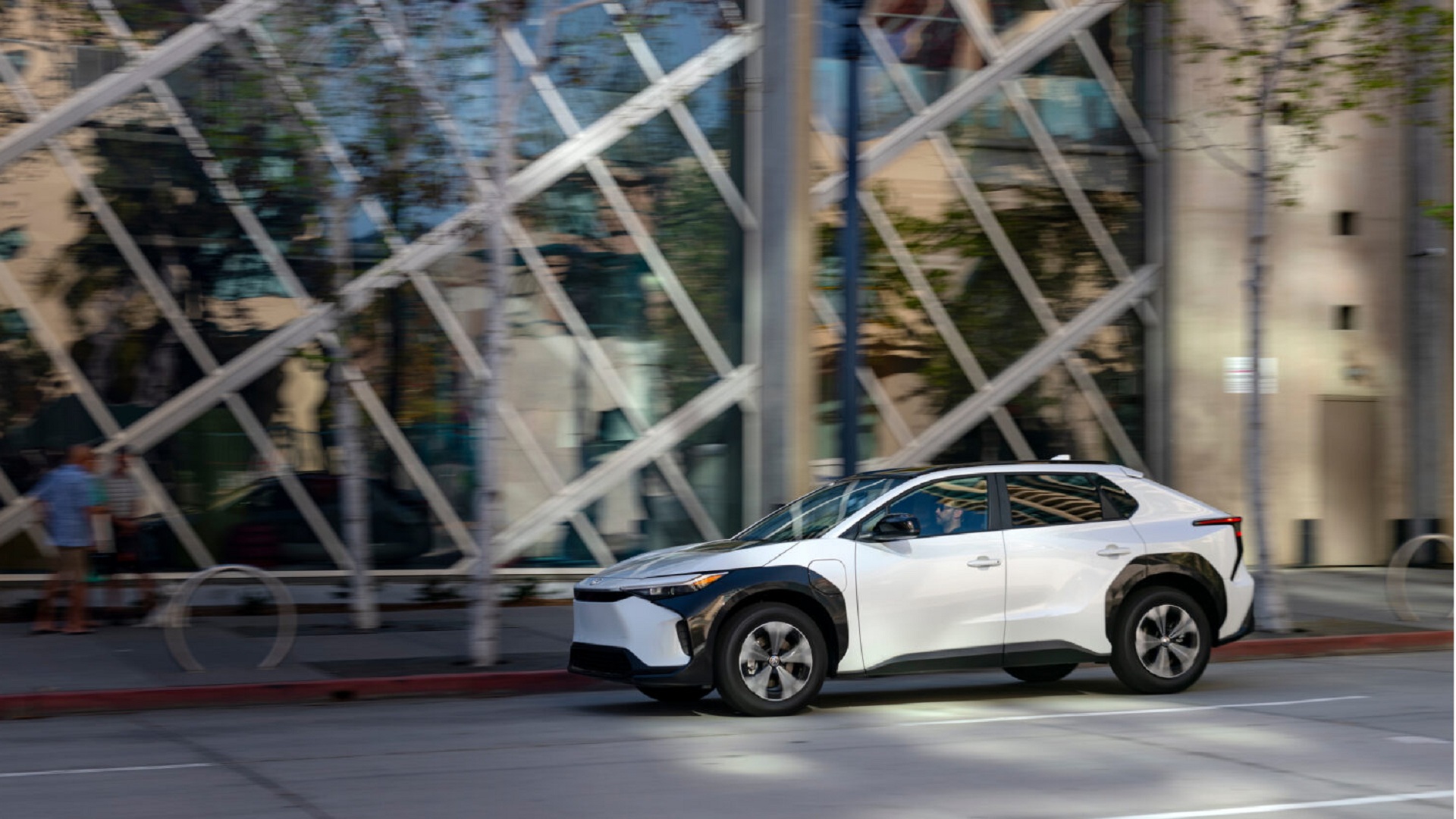
As the globe raced towards an electrified tomorrow, Toyota remained stationary.
However, the Japanese automaker might arrive tardy to the electric vehicle celebration but could end up dominating it with an impressive attendance of one million enthusiasts.
As per recent reports, Toyota – having placed significant bets on hybrid cars over the past ten years – is now accelerating its focus on electric vehicles for the coming few years.
As the bZ4X and its Lexus RZ equivalent stand as Toyota’s sole representatives at the U.S. BEV market table, the automaker faces significant ground to regain. However, this landscape could shift promptly.
Reports suggest Toyota plans to have around 15 electric vehicle models developed in-house by 2027, with an ambitious target of producing about a million EVs annually by then.
In 2021, when presenting Toyota’s plan for electrification, CEO Akio Toyoda deliberately avoided setting a deadline for transitioning completely to electric vehicles.
This careful strategy persists to this day. The firm remains committed to pursuing electrification solely when and where it is deemed appropriate.
Toyota EV strategy
Therefore, for Toyota to ramp up efforts towards electric vehicles just as numerous competitors are scaling back their commitments and postponing releases makes its timing seem less like an error and more like a strategic decision.
Toyota’s plan for electrification centers around a "multi-pathway approach," blending adaptability with cutting-edge technology. Despite focusing on increasing the manufacturing of battery electric vehicles (BEVs), the company also pours resources into hybrid, plug-in hybrid, and hydrogen fuel cell technologies to cater to various local demands and customer choices.
The company has established significant ecological objectives, such as ensuring all new vehicles sold in Europe emit zero CO₂ emissions by 2035 and attaining overall carbon neutrality globally by 2050. Additionally, Toyota is partnering with various emerging companies and enterprises to develop sustainable energy technologies, featuring their innovative hydrogen cartridge idea.
Solid-state battery technology
In terms of technology, Toyota is placing major bets on solid-state batteries and next-gen manufacturing.
With an investment of $13.6 billion, the firm plans to bring solid-state batteries to market by 2027 or 2028, offering battery charges in just 10 minutes and a driving range of up to 1,200 kilometers (750 miles).
Meanwhile, Toyota is investigating Tesla-like gigacasting techniques to accelerate EV manufacturing. They have showcased a prototype capable of producing key body parts in as little as three minutes and intend to implement this method in their upcoming operations. EV The model scheduled for release in 2026. These advancements collectively demonstrate Toyota’s committed progression towards embracing the era of electricity.
Even with these advances, the Japanese automaker postponed EV manufacturing in the U.S. last year due to a market downturn. The firm moved its plan to start producing its three-row electric SUV at its facility in Kentucky from 2025 to sometime during the first part of 2026.
Backed by a $1.3 billion investment, the project represents a major step forward for Toyota’s electric vehicle strategy in the U.S. Nonetheless, recent reports indicate that suppliers were notified about an updated schedule—the first acknowledged delay of an EV initiative by a Japanese carmaker in this market.
Toyota is progressively expanding its electric vehicle portfolio across various international markets. battery The electric C-HR+ was recently introduced in Europe with an estimated base price of approximately $30,000. Meanwhile, the smaller bZ3X hit the Chinese market last month priced at roughly $15,100.
The bigger three-row bZ5X is slated for release later this year, alongside its upscale counterpart, the Lexus TZ. Rumors are swirling about the potential unveiling of the much-discussed Lexus electric supercar as well. Additionally, plans include developing an all-electric variant of the beloved Tacoma pickup truck.
Should Toyota manage to increase its worldwide electric vehicle sales twenty-five-fold before 2030, it would indeed be an impressive achievement; however, accomplishing this will largely hinge on providing a wider array of models priced appropriately for various markets.
In 2024, Toyota sold around 140,000 electric vehicles worldwide, which encompassed their hydrogen fuel cell EV, the Mirai. Although this represents an increase compared to 2023, electric vehicles accounted for only 2 percent of the automaker's overall global sales.
However, this change is imminent. Should total production volumes remain constant, Toyota’s plans indicate a significant increase—with the aim to produce electrics accounting for 35% of their global output by the end of the decade.
